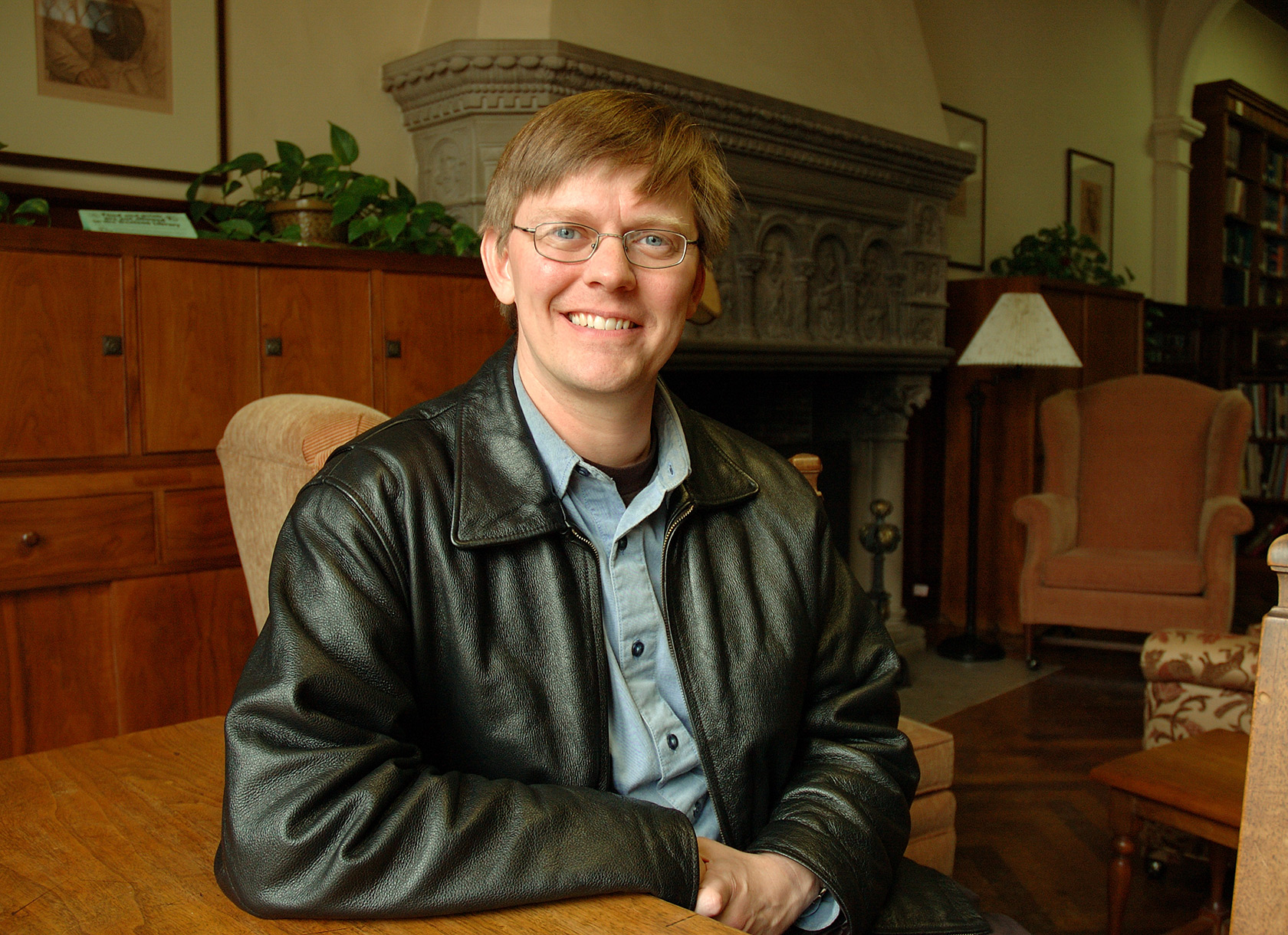
For Professor of Mathematics Christopher Towse, who was appointed this summer to the Herron Family Endowed Chair in Mathematics, partnering with students to explore theoretical concepts is vital to his teaching and research. “At Scripps, math makes the most sense when there’s lots of student involvement,” he says. “When I think about what I want to work on, I think of problems that are motivated by students, concepts that students are interested in, and projects I want to do with students.”
The Herron Family Endowed Chair in Mathematics was established by Jeannette (Jan) Pierson Herron ’45 and Joseph Herron. While at Scripps, Herron majored in mathematics and was one of the College’s earliest proponents of the inclusion of mathematics and science as part of a liberal arts education. She later served as an alumna trustee from 1968–73; her son, Mark Herron, has served on the Board of Trustees since 1997, including as the chair from 2014–18. The chair was endowed to enable future generations of Scripps students to pursue their interests in mathematics at Scripps.
A four-time recipient of the Mary Johnson Faculty Achievement Award for Teaching, Towse enjoys engaging with students on a variety of mathematical levels, from classwork and individual research projects to senior theses and joint authorship of a paper published in research journal Acta Arithmetica. In 2009, he received a National Science Foundation grant to run The Claremont Colleges Mathematics Research Experiences for Undergraduates (REU) site, a summer program that connects undergraduates with faculty members for research projects and career-focused workshops. To provide his students with better tools for understanding applied mathematics, he’s currently writing a differential equations textbook.
But, Towse believes that appreciation for mathematics shouldn’t be limited to math majors. In addition to teaching more traditional subjects such as calculus, linear algebra, and number theory, he also teaches a Core III class that examines how math fits into our culture from a humanities perspective. “Sometimes I feel like mathematics should be more integrated into the humanities or the arts,” he says. “A lot of mathematics is theoretical, but it’s also a tool for understanding, and that’s what the humanities are: understanding how we understand things, as humans. When you’re doing math, you’re doing something creative. That’s been a fun idea to explore at Scripps.”
To that end, Towse is applying this interdisciplinary approach beyond the mathematics field. This fall, he’s teaching an introductory data science course as part of Scripps’ new data science minor. “Computer science is extremely multidisciplinary, to a point that many people don’t realize,” Towse says. “I’ll be coming at it from a mathematician’s point of view, and we’ll embrace the fact that students will be coming at from their different disciplinary viewpoints.”
As with his other classes and projects, student involvement in the process has been key: Five Scripps students have volunteered to serve as assistants for the course. Towse plans to maximize the opportunities provided by this assistantship to highlight the collaborative nature of computer science. In planning the course’s structure, Towse and his team of student tutors envision adapting some aspects of the flipped classroom, such as in-class problem-solving workshops and small-group mentoring sessions in online breakout rooms. “Computer scientists have to work with others in a way that Scripps students already do really well,” Towse says.
Towse acknowledges that, upon transitioning to online learning in March, he wanted classes to feel as “normal” as possible for the many students whose lives have been impacted by the COVID-19 pandemic—he even sent homemade baked goods to some of his spring semester students during their final presentations. However, he also believes that the fall semester’s remote instruction will provide opportunities for the type of faculty and student growth that’s foundational to a liberal arts education. He plans to use a portion of the funds from the Herron Family Endowed Chair to purchase additional educational technology and equipment that will enhance virtual learning for his math and data science students.
“If you’re here and you’re going to really embrace the liberal arts ideal, that you’re doing this because you want to learn, be exposed to new ideas, and challenge yourself,” he says, “we’re still doing that.”

